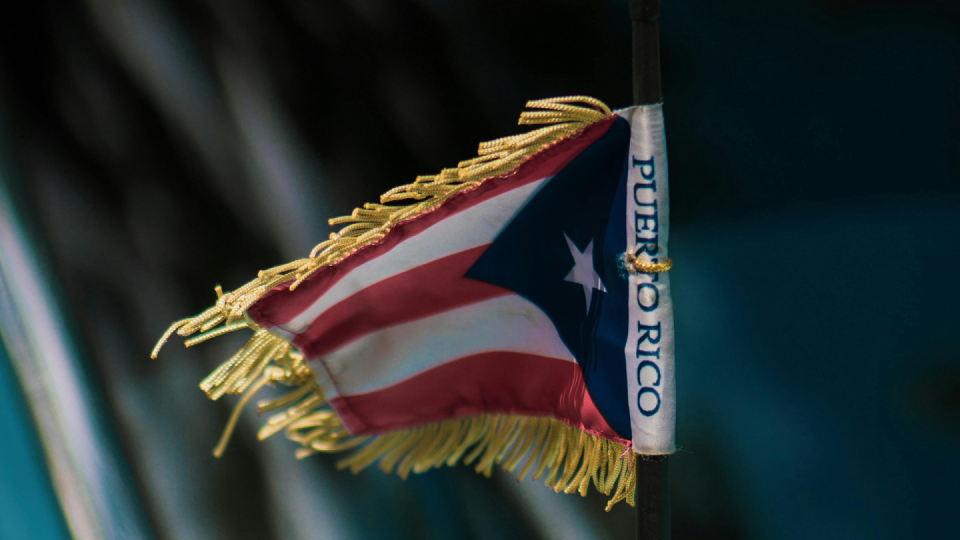In Ohio, fear sweeps among some Puerto Rican queer voters after the election

This story is published in partnership with the Queer News Network, a collaboration among 11 LGBTQ+ newsrooms to cover down ballot elections across 10 states. Read more about us here.
President Donald Trump’s reelection has caused fear and outrage for Puerto Ricans in Ohio.
QNN spoke with a handful of Puerto Rican voters in Ohio on how they felt about the election results and Donald Trump’s victory to the White House. Many said they were afraid to speak on record, citing repercussions from far-right organizers. QNN offered anonymity and verified their identity through social media, emails and personal contact information.
“I feel like I'm in survival mode,” said one Puerto Rican grad student in Columbus who asked QNN to omit her last name for her safety. “So much of the propaganda of the Trump campaign were transphobic messages.”
She fears that the situation could become “unimaginably horrible,” specifically with limits to abortion rights, contraception, increased attacks against the LGBTQ+ community, and anti-immigrant rhetoric targeting Latinos.
“I was going to stay here a few years after graduating,” she said, but is now planning to return “immediately” to Puerto Rico once she finishes her degree.
Local Puerto Ricans interviewed also said that the election of Trump and of local Republicans further cements the feeling that they are rejected by Americans, even in Democratic bubbles around cities.
Ohio has a population of 139,068 Puerto Ricans, according to most recent Census numbers. Many of those people moved to Ohio after Hurricane María, which significantly damaged the island in 2017 and killed approximately 2,975 people in the aftermath. In a defining moment of his presidency, Trump attempted to provide aid by tossing paper towels into a crowd during a visit to Puerto Rico about two weeks after the hurricane.
An insult by comedian Tony Hinchcliffe at Donald Trump’s Madison Square Garden rally the week before Election Day further demonstrated, to some people, feelings that the Trump following has disregard for Latinos. Hinchcliffe called the island “garbage.”
Meghan Edwards, who QNN previously previously interviewed about LGBTQ+ Ohioans’ hesitation to vote for Harris over the Biden’s administration response to the war in Palestine, said she felt defeated.
“Seeing him win with a larger margin hurts because it's an indication that we really do live in a country that is hostile to queer people, to immigrants, to women,” Edwards said. “it’s just difficult to kind of look that in the face.”
Edwards said Ohioans like her are “heartbroken,” adding how U.S. Sen. Sherrod Brown lost his race to Bernie Moreno, who endorsed a campaign ad that scapegoated trans people: “We lost our Democratic senator, we lost Issue 1 which would have done a lot to fix gerrymandering, so just an overall sense of failure and powerlessness.”
Edwards voted for Claudia De La Cruz, the Party for Socialism and Liberation presidential candidate.
She has had discussions about whether third party voters are at fault, but has dismissed it given that even if all third-party votes had gone to Vice President Kamala Harris, Trump would have still eked out a win.
“It is a wake up call for a lot of people that the Democratic Party needs to change,” Edwards said.
Instead for some Ohioans, the blame is not towards the Democratic party, specifically, but gerrymandering.
The state is one of the most gerrymandered in the nation, according to a report by the League of Women Voters of Ohio.
A ballot proposition - Issue 1 - was supposed to fix that problem by creating an independent nonpartisan panel to draw district boundaries, but it lost after Republicans changed the language on the ballot to state that it actually created gerrymandering.
“When people don't have to worry about winning a general election that means they have to worry about the primary,” said Dianne Selvey who ran for Ohio state representative and lost to Republican Gary Click.
Selvey said that in her experience primaries favor more extremist candidates who don’t compromise with the other party.
“We need moderates. We need the middle, and the middle can't hold it in a gerrymandered map.”